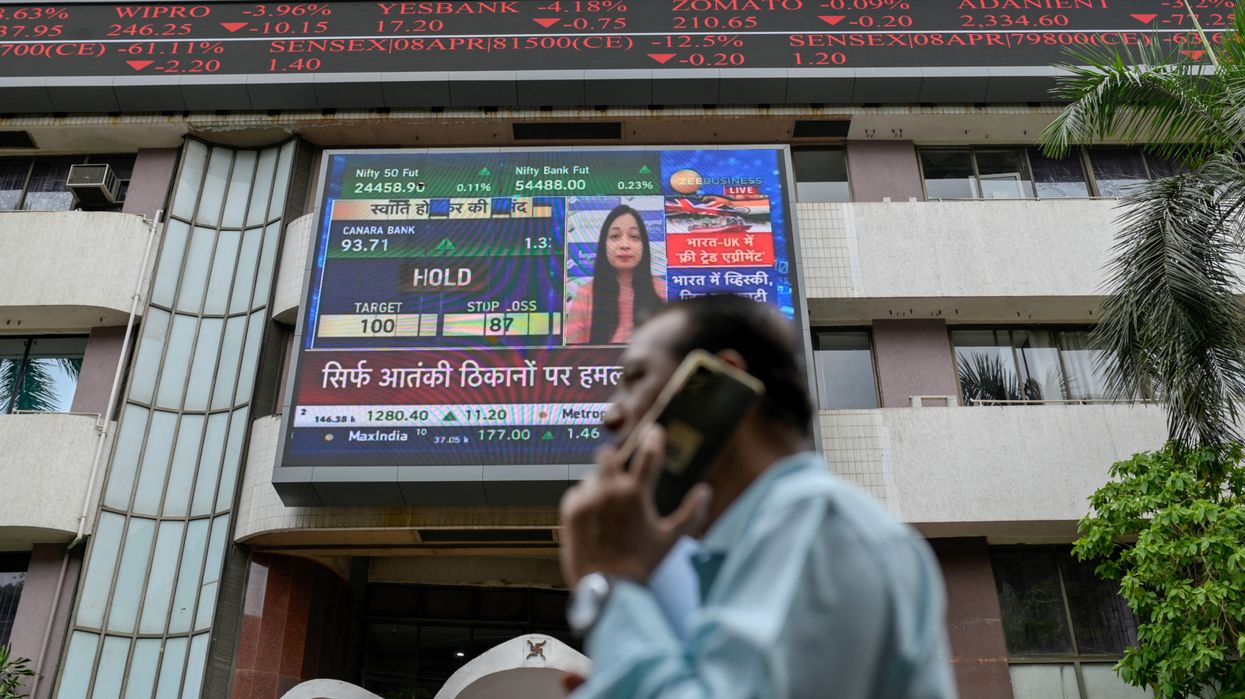THE latest conflict between India and Pakistan may impact New Delhi’s efforts to pitch itself as a safe haven for foreign investors amid global economic turmoil – but not much, investors and analysts said last Wednesday (7), prior to the ceasefire between the two countries.
India’s $4 trillion (£3 tr) economy has limited direct trade with Pakistan. Even its overnight crossborder missile strikes had little immediate impact on local equity, currency and bond markets, on the view that full-fledged conflict was unlikely.
“If there is a cessation of hostilities like there should be, pragmatically and practically, the investment climate may not actually be harmed,” Ajay Marwaha, head of fixed income at Mumbai-headquartered investment house Nuvama Group, said last week.
Previous conflicts have not had a lasting impact on Indian assets, Citibank analysts wrote in a note last Wednesday.
In the last such flare-up with Pakistan, in February 2019, the Indian rupee held steady and bond yields rose 15 basis points over that month but retreated later.
In June 2020, when fighting broke out between Indian and Chinese troops in the Galwan valley, the rupee weakened one per cent, but regained ground as the two sides disengaged, Citi analysts said.
Since US president Donald Trump unveiled a slate of huge tariffs on his country’s trading partners, Indian markets have, in fact, performed well.
“The Indian market had begun to outperform on the back of the perception that there is some insulation from Trump tariffs, given the strength of domestic consumption and a clear signal of monetary loosening from the central bank,” said Sat Dhura, portfolio manager at Janus Henderson Investors.
He acknowledged that “recent events are likely to keep foreign investors away”, but added that local investment flows were likely to be sticky, helping to serve as a support to the markets.
India is expected to remain the fastest-growing major economy, with the central bank forecasting GDP growth of 6.5 per cent this financial year. It is also among the best-performing of the world’s big stock markets since early April, when Washington announced reciprocal tariffs on its trading partners.
Foreign investors, who sold Indian stocks from last October to March this year, turned buyers in April and early May, picking up about $1.5 billion (£1.12bn). They remained sellers of Indian bonds, offloading $1.7bn (£1.3bn) since the start of April.
The focus, analysts said, remains on trade deals. India sealed a long-negotiated trade agreement with the UK last Tuesday (6) and discussions are ongoing for a bilateral trade agreement with the US.
“While sentiments are likely to be jittery in the immediate term, these tensions are unlikely to derail the medium-term appeal of the Indian economy,” said Radhika Rao, senior economist at DBS Bank in Singapore.
More “substantial developments” like the justconcluded India-UK trade deal, the impending agreement with the US and the central bank’s dovish policies will dictate the path of India’s growth trade outlook, Rao added.
The impact of the conflict between India and Pakistan on any potential longer-term investment “may not be very much”, said Subhash Chandra Garg, a former top government bureaucrat.
The areas bordering Pakistan are in the north and west of India but most foreign investment for manufacturing facilities is centred in southern and central India, Garg noted. (Reuters)




